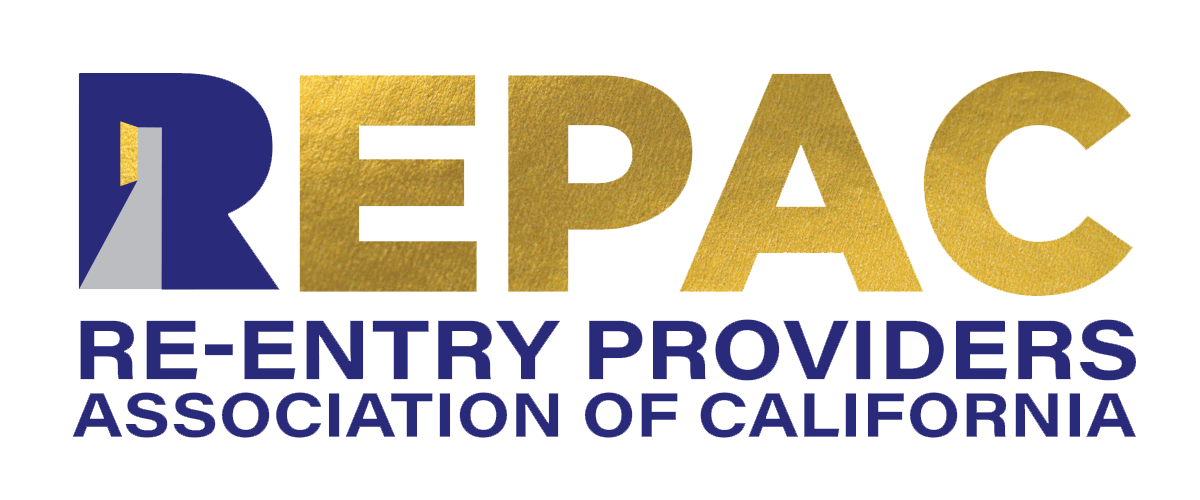Events & NEWS
Nation’s Largest Re-Entry Population Gets New Political Representation in California Capitol
Re-Entry Providers Association of California Launches, Representing More Than 30,000 Californians Re-Entering Communities from Prison Every Year
Thursday, October 28, 2021 10:00 AM PST

LOS ANGELES – A first-of-it’s-kind in the nation organization formed to advocate for more systemic investment in re-entry services for people returning home from California jails and prisons after a period of incarceration announced it’s launch Wednesday.
The Re-Entry Providers Association of California (REPAC) is comprised of some of California’s largest, most successful and pioneering re-entry service providers as founding members. It will advocate in Sacramento and in local communities on behalf of the tens of thousands of people recently released from prison at any given time as well as other re-entry service providers across the state that, like themselves, have been historically under-funded, overlooked and deprioritized despite doing work critical to protecting the health, well-being and safety of our communities.
“After years of not having a seat at the table and struggling to piece together funding, we have decided to come together to amplify our voices on behalf of this crucial sector of our society that simply does not get the resources and support it needs,” said Donald Frazier, executive director of Building Opportunities for Self-Sufficiency (BOSS), an Oakland-based comprehensive re-entry housing, employment and supportive services provider, and REPAC’s director. “California has never adequately committed to ensuring people coming home from prison are able to meet their most basic, pressing needs. Helping people returning from incarceration has never been more important.”
In a typical year in California, as many as 35,000 people who have successfully completed their sentence or been granted parole are released from California prisons, a pace that accelerated during the pandemic as the need to significantly reduce overcrowded conditions became urgent. The state’s overall prison population dipped below 100,000 for the first time in decades last year, as a result of releases spurred by the pandemic and recent justice reforms prioritizing crime prevention over lengthy sentences.
“Helping people being released from jail and prison find jobs and safe housing has never been more important,” said Susan Burton, founder and president of A New Way of Life Re-entry Project in Los Angeles, which works to advance multi-dimensional solutions to the effects of incarceration. “Re-entry has never been a priority for the state of California, despite the fact that successful re-entry programs are a key to community health and safety. Now more than ever, our health and safety require an immediate commitment to ensuring successful re-entry.”
California’s re-entry population is the largest in the nation, a consequence of the state having for years been a national leader in harsh sentencing and incarceration. According to a 2018 report published by Californians for Safety and Justice, more than half of people with a past conviction record have trouble finding a job, and more than a quarter struggle to find housing.
“For too long, people coming home to our communities from jail or prison have been set up for failure by making it nearly impossible for folks to regain stability and economic security,” said Doug Bond, chief executive officer of Amity Foundation in Los Angeles. “That’s unfair for the folks coming home, and compromises the health and safety of all of our communities. California must deepen it’s support of re-entry providers and make it as easy and seamless as possible for people being released from incarceration to access the services available to ensure their basic immediate needs are met, such as housing, food and clothing.”
REPAC will advocate on behalf of the patchwork of re-entry service providers that exist across California, operating largely in silos and on shoestring budgets to ensure people coming home have access to things like job training, transportation, childcare, educational opportunities and housing. The group will seek to address gaps and barriers to successful re-entry in California by examining state laws, regulations, budgets and administrative policies, and will proactively engage in direct lobbying in the state Capitol.
“Re-entry services have been historically underfunded resulting in lack of resources and support needed further deepening the cycle of incarceration among generations,” said Steven Kim, founder and executive director of Project Kinship, a re-entry services provider in Orange County. “If there is one thing this pandemic has taught us, it’s that moving forward we need to ensure that California’s re-entry infrastructure is supported and resourced to protect our collective health and safety.”
Studies have shown that supporting re-entry programs is one of the very best ways of preventing people from re-offending, further injuring their own lives and prospects and undermining community safety.
“Across California, there are many community-based organizations working tirelessly to meet the needs of and provide assistance to people coming home from jail and prison,” said Saun Hough, partnerships manager for Californians for Safety and Justice and a member of REPAC’s board of directors. “What they need now is critical government support. There is a significant lack of public and political attention on the potential of re-entry programs to help people succeed and reduce recidivism.”
Don’t miss out! Get updates when you sign up for our email list.
